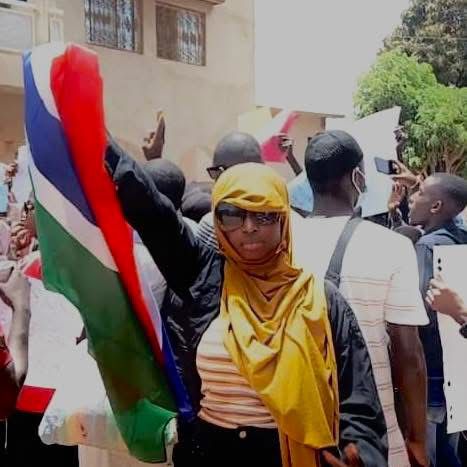Written by: Fatou Camara Junior
Increasingly, a troubling undercurrent has been growing in The Gambia, the normalization of tribal insults and ethnically charged rhetoric in public discourse. From online platforms to political gatherings, tribal identity is increasingly being weaponized to insult, divide, and provoke. If left unaddressed, this trend could threaten the peaceful coexistence our nation has long cherished.
Freedom of expression is a fundamental right, protected by the 1997 Constitution. But it is not a license to demean, incite hatred, or promote violence against others based on their tribal or ethnic background. No society can flourish where unity is constantly undermined by unchecked speech that stokes division.
The dangers of tribal hatred are not theoretical. We only need to look to Rwanda, where decades of ethnic stereotyping and hate propaganda laid the groundwork for the 1994 genocide. Over 800,000 lives were reportedly lost in 100 days, a tragedy fueled in part by words.
In the aftermath, Rwanda took bold legal steps to criminalize “divisionism” and ethnic hate speech. Today, it is one of the most stable and socially cohesive nations in Africa, not in spite of these laws, but because of them.
The Gambia must learn from this history, and not repeat it.
What is particularly alarming is that this toxic tribal narrative is no longer limited to political platforms or social media. It is now creeping into our music industry, a space long seen as a voice for the people and a bridge across communities. Musicians, once celebrated for uniting the nation through rhythm and message, are increasingly being pulled into tribal affiliations, subtle innuendos, and coded attacks.
When even our artists, who should be promoting peace and unity, start echoing tribal undertones, we must recognize that this problem is deepening.
We are calling on the National Assembly to take immediate legislative action to:
-
criminalize the public use of tribal slurs, ethnic insults, and stereotypes that are intended to humiliate or demean individuals or groups
- Advertisement - -
enforce penalties against tribal speech or actions that incite violence or discrimination on the basis of tribal affiliation, whether in public, media, or digital spaces
-
establish a legal framework distinguishing free speech from hate speech, ensuring both are respected and appropriately addressed
-
require political parties, public figures, and media platforms to monitor and discourage tribal hate speech, especially during election seasons
-
promote public education campaigns on ethnic tolerance, civic identity, and national unity
Let it be clear: this is not about silencing disagreement or suppressing culture. It is about protecting the very fabric of our nation, our shared identity as Gambians.
The time to act is now. The longer we tolerate tribal insults as mere politics, jokes, or private issues, the more we risk normalizing ethnic hate. Words have power. When wielded carelessly or maliciously, they can destroy lives, communities, and even nations.
We must now ask ourselves: will the National Assembly remain silent and do nothing because some of its members are among the politicians who lean on tribal politics to secure votes?
I don’t want to believe that, and I hope our lawmakers will prove otherwise by acting in the interest of national unity, not political survival.
The National Assembly has the constitutional mandate to protect the dignity, peace, and security of all Gambians. It must rise to this responsibility before toxic speech breeds irreversible harm.
Let us not wait for tragedy to teach us a lesson we can learn today.




